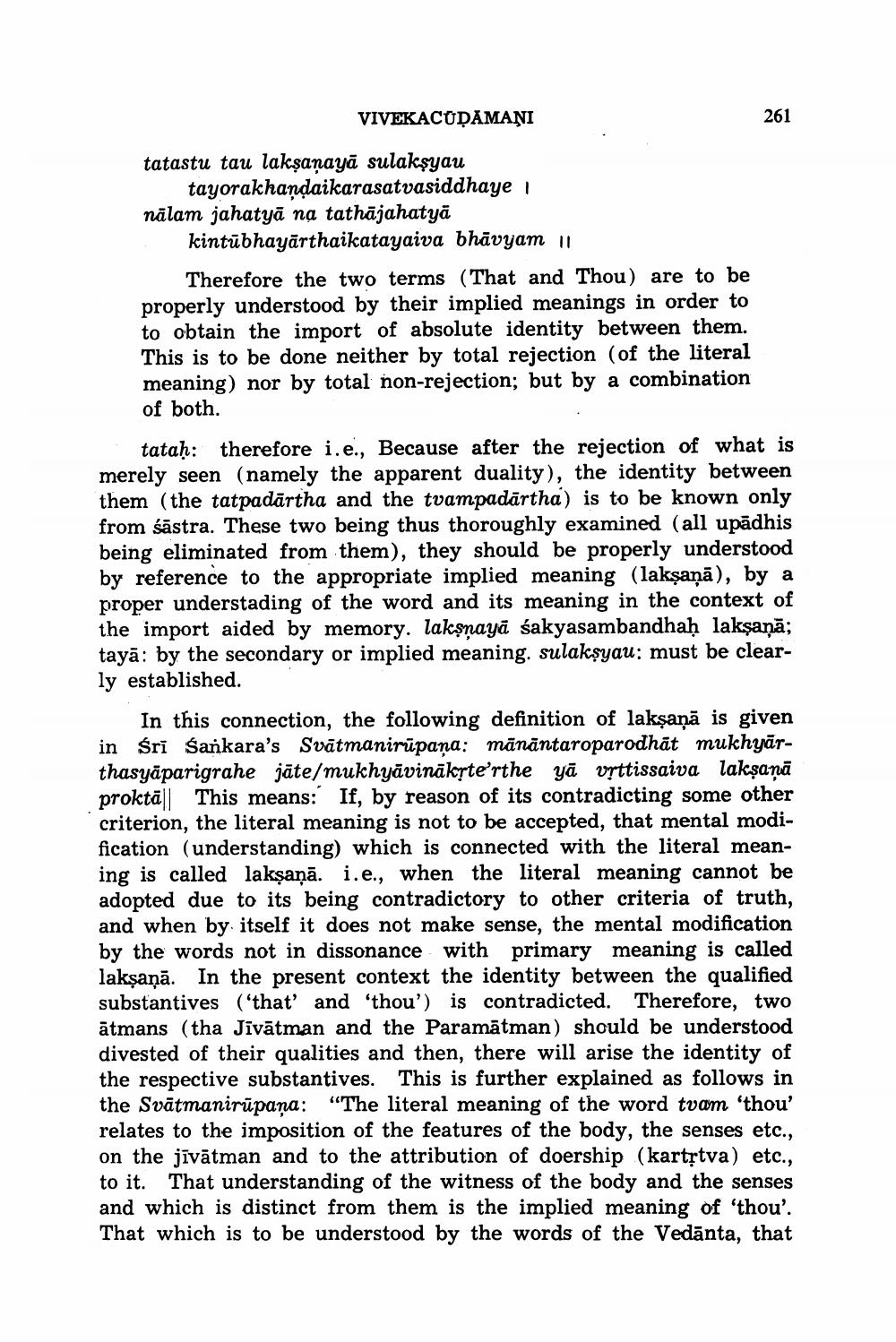________________
VIVEKACUDAMAŅI
261
tatastu tau lakṣaṇayā sulakşyau
tayorakhandaikarasatvasiddhaye 1 nālam jahatyā na tathājahatyä
kintūbhayārthaikatayaiva bhavyam11
Therefore the two terms (That and Thou) are to be properly understood by their implied meanings in order to to obtain the import of absolute identity between them. This is to be done neither by total rejection (of the literal meaning) nor by total non-rejection; but by a combination of both.
tataḥ: therefore i.e., Because after the rejection of what is merely seen (namely the apparent duality), the identity between them (the tatpadārtha and the tvampadārtha) is to be known only from śāstra. These two being thus thoroughly examined (all upādhis
liminated from them), they should be properly understood by reference to the appropriate implied meaning (laksaņā), by a proper understading of the word and its meaning in the context of the import aided by memory. lakşņayā sakyasambandhaḥ laksaņā; tayā: by the secondary or implied meaning. sulakşyau: must be clearly established.
In this connection, the following definition of laksaņā is given in Śri Sankara's Svātmanirūpaņa: mānāntaroparodhāt mukhyārthasyäparigrahe jāte/mukhyāvinākrte'rthe yā vrttissaiva lakşanā proktä|| This means: If, by reason of its contradicting some other criterion, the literal meaning is not to be accepted, that mental modification (understanding) which is connected with the literal meaning is called laksanā. i.e., when the literal meaning cannot be adopted due to its being contradictory to other criteria of truth, and when by itself it does not make sense, the mental modification by the words not in dissonance with primary meaning is called laksaņā. In the present context the identity between the qualified substantives ('that' and 'thou') is contradicted. Therefore, two ātmans (tha Jivātman and the Paramātman) should be understood divested of their qualities and then, there will arise the identity of the respective substantives. This is further explained as follows in the Svātmanirūpana: "The literal meaning of the word tvam 'thou' relates to the imposition of the features of the body, the senses etc., on the jīvātman and to the attribution of doership (kartrtva) etc., to it. That understanding of the witness of the body and the senses and which is distinct from them is the implied meaning of 'thou'. That which is to be understood by the words of the Vedānta, that




